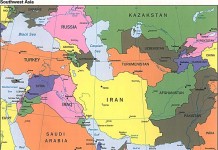Context

Trouble continues to brew in Northern Africa and the Horn of Africa, with fighting escalating in the Yemen, Sudan and South Sudan and Al Qaeda-linked militancy rife in the region. As the nation state system falters in the region, tensions have reawakened along tribal and ethnic lines, as PoliTact forecasts have predicted.
Analysis
Yemen
The situation in the Yemen is deteriorating rapidly, as the new government tries to deal with a growing militant insurgency in the country. The political vacuum created when long-time leader Ali Abdullah Saleh stepped amidst popular protests has given an unprecedented opportunity to militant groups in the country – largely affiliated with the Al Qaeda in the Arabian Peninsula – to seize control, particularly in the lawless south. Militants now control swathes of territory in the south, and new President Abed Rabbo Mansour Hadi is attempting to retake these areas, however lack of control within his own government hampers his efforts to rally a dispirited military, handing further advantage to the militants.
Yemen is of crucial importance to the US, although there is a lower-profile interest in the country than its efforts in the war on terror in Afghanistan or Iraq. The country is seen as the future of the war on terror, and as a major rallying point for Al Qaeda. The US regularly carries out aerial unmanned drone attacks in the country, although it has yet to formally acknowledge this practice. On Sunday April 15, three suspected militants were killed in a drone attack on their moving vehicle, according to Yemeni security officials.
Somalia, Mali, Sudan
Somalia, Mali and Sudan and South Sudan are also all in a state of flux. Al Qaeda-linked militant groups in all three countries are using the internal political upheavals as an opportunity to capitalize on the reversion in many areas to tribal and ethnics links, as the pull of the nation state system weakens. In Somalia and Mali, militants are actively advertising the countries’ lawless regions as safe havens for militants, and the biggest concern for these governments is not only the rallying of citizens to the militant banner, but also the influx of foreign fighters to take advantage of the safe refuge available. In Somalia the proximity to Yemen has hampered efforts in both states to fight militants, who find it easy to jump the narrow Gulf of Aden when there is heavy pressure from one side, only to return when the pressure decreases.
Sudan and Southern Sudan have also recently come back to the brink of war after ending one of Africa’s longest and bloodiest civil wars in 2005. The border town of Heglig is at the center of the new tensions, which is a crucial oil-producing asset that both sides claim. Egypt has taken on the role of mediator in the latest escalation of tensions, promising to ‘contain the tensions’ between the two countries in order to prevent a descent into all-out war.
Egypt
While Egypt still possesses enough regional clout to offer mediation in conflicts like in Sudan, its own internal situation is far from resolved. The biggest looming issue is the presidential elections slated for June, as a number of candidates were recently disqualified from running. There is still some doubt as to whether the military council ruling Egypt will let free and fair elections take place in the country, as they have effectively been in control of the country for decades, ruling from behind ousted former president Hosni Mubarak.
Tensions are also rising in the Sinai between government forces and local Bedouin tribes, who feel they were mistreated for years under Mubarak and now demand fairer treatment and more representation. However, the militant-linked Muslim Brotherhood is holding sway politically in Egypt. They backtracked on their promise not to field a candidate for the Presidency, although their main candidate, Khairat El-Shater was later dismissed because he was only recently released from prison, and Egyptian law states that any candidate must have been pardoned or released from jail six years prior to running for office.
The situation in Egypt holds some similarities to problems in Pakistan. A strong military clashing with a civilian government, and both attempting to stem the tide of tribalism and ethnic divisions opening up in their respective countries.
Libya
Libya is also struggling with a recession into tribalism as the new government has failed to adequately present a united front for the people of Libya to rally behind. There is still a long way to go for Libya to rebuild itself, and as the new government deals with its own problems, people tend to look to tribal leaders more and more in place of a solid nation state.
This is a trend that PoliTact anticipated in the wake of the Arab Spring upheavals, and is proving to be a common tendency across most of the countries affected by the Arab Spring, as well as those struggling in the Horn of Africa. As the nation state system weakens, this trend can be projected to intensify as people look to a more local figurehead to deal with day to day issue in lieu of a stable state structure, judiciary and law enforcement.



